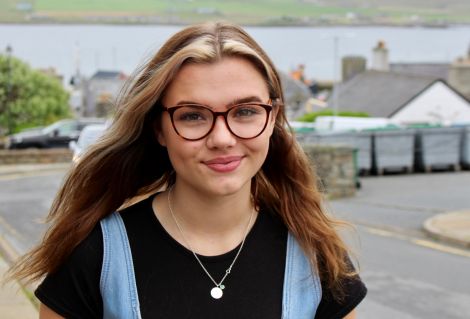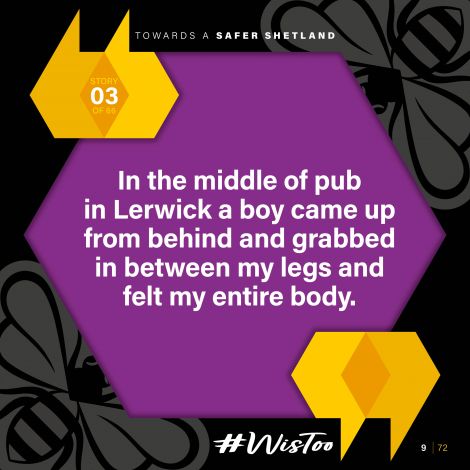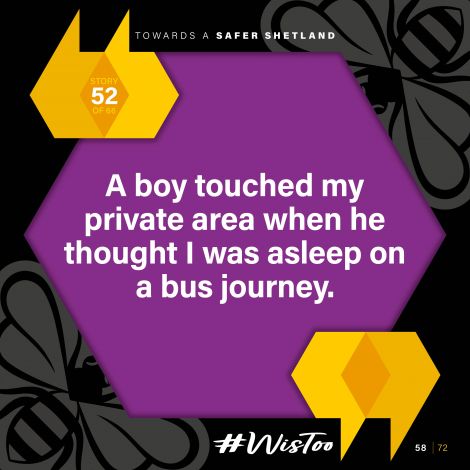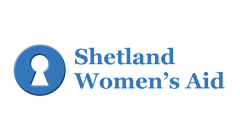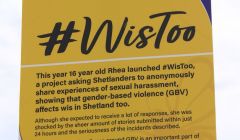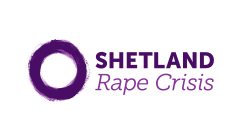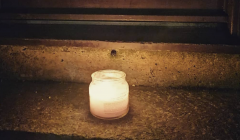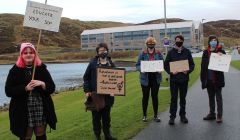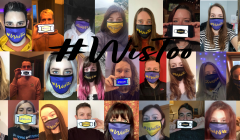Community / New report featuring first-hand accounts aims to raise awareness of sexual harassment and violence in isles
Towards a Safer Shetland contains over 60 stories, from inappropriate touching to rape
OVER 60 accounts of sexual harassment, assault and abuse in Shetland have been compiled in a groundbreaking new report which aims to raise awareness of sexual violence in the isles.
The document is the work of 16-year-old Rhea from Scalloway, who approached local charity Shetland Rape Crisis for help in packaging it together.
It shines a sobering light on the extent of sexual harassment and abuse people in Shetland have experienced.
One of the key aims is to highlight that the issue is as much of a problem in Shetland as it is anywhere else.
The anonymous stories range from older men touching a 14-year-old inappropriately in the workplace to “get past” them, to people being taken advantage of while sleeping.
There is also an account of being raped in a public place in Lerwick.
Shetland MSP Beatrice Wishart said it made for “difficult reading” and added “there is work to do to educate both young and old and get rid of this kind of unacceptable behaviour”.
The idea came from Rhea, who is a volunteer with Shetland Rape Crisis’ young activists group, after she used an anonymous social media app to ask if people had been affected by sexual harassment in Shetland.
It runs alongside the hashtag #wistoo, which gives a local twist to the #metoo movement where women shared stories online of sexual harassment and abuse.
“Originally I was just going to do three or four stories that weren’t that big, just to show awareness,” Rhea said.
“Originally I was just going to do three or four stories that weren’t that big, just to show awareness,” she said.
“I decided after that to try to get a bit more stories, thinking I would only get maybe 10 or 15. I got so many replies, and that’s when I contacted Shetland Rape Crisis.”
Become a member of Shetland News
Rhea, who studies at the Anderson High School, said she was “shocked” by the number of accounts that were contributed, and the seriousness of the incidents.
She said one of the main trends in the stories were incidents happening to people aged between 15 and 18 who had been drinking or were at parties.
“There was also quite a pattern in parties and girls being asleep and waking up to boys trying it on with them,” Rhea continued.
“Underage was another big thing.”
Rhea hopes that the report, called Towards a Safer Shetland, might encourage other people to come forward to speak about the abuse they have suffered.
“I know there will be a lot of people that won’t come out about their stories and they will be hiding stuff,” she said.
“I think it will show that they’re not alone and they will get the support that they need if they do decide to speak up about what’s happened.
“It definitely highlights that it’s as serious up here as it is anywhere else, and just because we’re a smaller place that it isn’t less serious, or that it doesn’t happen up here.”
The report highlights that “many survivors [of sexual abuse] never tell anyone and it is rarely reported to the police”.
“The victim is not to blame,” it adds. “Sexual violence doesn’t ‘just happen’. A person commits sexual violence because, at some level, they decide to do so.”
Shetland Rape Crisis service manager Lisa Ward said the Lerwick-based charity is preparing for an increase in people getting in touch as a result of the report.
She added that “it’s not that Shetland is uniquely overrun with sexual violence – it’s that it’s the same as everywhere else”.
“I think Shetland Rape Crisis has to be prepared for the fact that we might get a bit of a surge in people looking for support,” Ward said.
“We have to be really clear that we are a really small team and we are pretty much at capacity right now, so there might be waiting lists.”
Ward said that the charity aims to support young people, who were behind a large number of the stories, as soon as possible.
“We know that a lot of these stories are young people because they gave their ages,” she said.
Solidarity helps reduce the stigma
“That’s one of the striking things about it. We’re kind of gearing up in case we get a lot of people in touch. But it might just be the case that we get a lot of stories shared with us. I think people seem to have found that cathartic.
“People don’t always come to formal services – they don’t necessarily need to, they find ways to cope. Maybe that solidarity of knowing you’re not alone will be enough for a lot of people who are really struggling right now.”
There is also a hope that the stories may encourage a change in some people’s perception of what sexual violence is.
“If you don’t understand how sexual violence happens – if you think it’s like strangers attacking someone in the street, this will completely turn that on its head,” Ward said.
“Because it’s about pattern recognition, and you can’t do that without a huge sample size. That’s what all of these survivors have done. They’ve used their voices to create that pattern, that image of what’s going on every day in Shetland.”
She said a perpetrator of sexual violence or rape doesn’t do so “out of nowhere”, with behaviour often escalating over time.
“You might hear a story of these guys that put their hands on your waist when they don’t need to if they go by you in a pub, or on your bum, or whatever,” Ward continued.
“That behaviour is a red flag because that’s the beginning of it. If you’re seeing that, that’s the tip of the iceberg. Underneath of all of that, then there’s quite possibly serious sexual assault and rape going on, and it allows people to be able to see that as part of the pattern of behaviour.
“The vast majority of people are not sexual predators – they don’t perpetrate sexual violence. So when they see things like that, from their perspective obviously it’s harmless because they would never do that. But you have to think from the point of view of the fact that there are people who repeat perpetration over and over and over.”
Ward also hopes that having survivors of abuse come together and use their voice could reduce stigma around sexual violence, which she said is an “isolating crime that involves shame”.
“Rhea spoke about how people talk about how you were dressed or how much you were drinking or did you flirt or did you want to have sex in one way and not another way,” she said.
“That shame is used to keep survivors quiet. But when you realise so many people have experienced that, it becomes less shamed based and there’s a lot more solidarity, and hopefully a bit more pragmatism around it.”
Shetland MSP Wishart, who is a trustee of Shetland Women’s Aid, said “the experiences described are not something anyone should be comfortable with”.
“Consent means saying yes, and it is clear from this report that far too often that is not happening,” she said.
“I am glad that support services exist in Shetland, and that through Rhea and Shetland Rape Crisis people have been given a voice.
“I know from my work with Women’s Aid that there is help available if anyone needs it and I would urge anyone who is struggling with their experience to contact these services. This can include advice and support for those who wish to make a report to the police.
“This report is also an opportunity to make things better, as a society and as a community. There is work to do to educate both young and old and get rid of this kind of unacceptable behaviour.”
Contact details for Shetland Rape Crisis can be found online.
Become a member of Shetland News
Shetland News is asking its many readers to consider paying for membership to get additional features and services: -
- Remove non-local ads;
- Bookmark posts to read later;
- Exclusive curated weekly newsletter;
- Hide membership messages;
- Comments open for discussion.
If you appreciate what we do and feel strongly about impartial local journalism, then please become a member of Shetland News by either making a single payment, or setting up a monthly, quarterly or yearly subscription.






